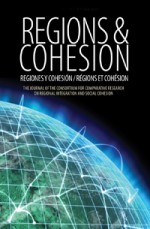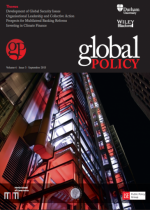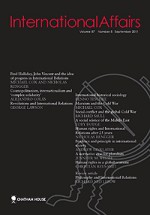Special Issue: New Regionalisms in Africa after the Commodity Boom

Africa grew faster than any other region in the first half of the decade: what prospects for the second half given the decline of emerging markets (Overbeek & Apeldoorn 2012, Utting, Razavi & Varghese 2012) & continuing conflicts, now compounded by climate change? Can the continent contribute to novel formulations of ‘regional development’ & ‘global IR’ (Bergamaschi, Moore & Tickner 2016) by 2020/2025? ‘Development’ is in flux post-2015 as new technologies & new donors disrupt established North-South relations. African regions now connect with China (Forum on China Africa Cooperation - FOCAC), Japan (Tokyo International Conference of Africa’s Development - TICAD), the BRICS (Brazil, Russia, India, China & South Africa), Korea & Turkey as well as the EU (Fioramonti 2012, Modi 2011). But the continent faces a growing range of Non-Traditional Security (NTS) issues including Transnational Organized Crime (TOC), to which the West African Commission on Drugs (WACD) responds (Shaw 2012), as well as global warming. And current 'disruptive' leaders in the US & UK make prevailing assumptions about multilateralism more problematic, reinforced by growing inequalities & nationalist forces in many regions from Europe to South America. The article concludes that there are several ‘Africas’ – developmental to fragile states plus myriad diasporas – some with more ‘agency’ than others (Shaw 2018), with which to advance ‘global governance’ beyond 2020/2025 (Bevir 2011, Brown 2012, Hale & Held 2011, Levi-Faur 2012)?






